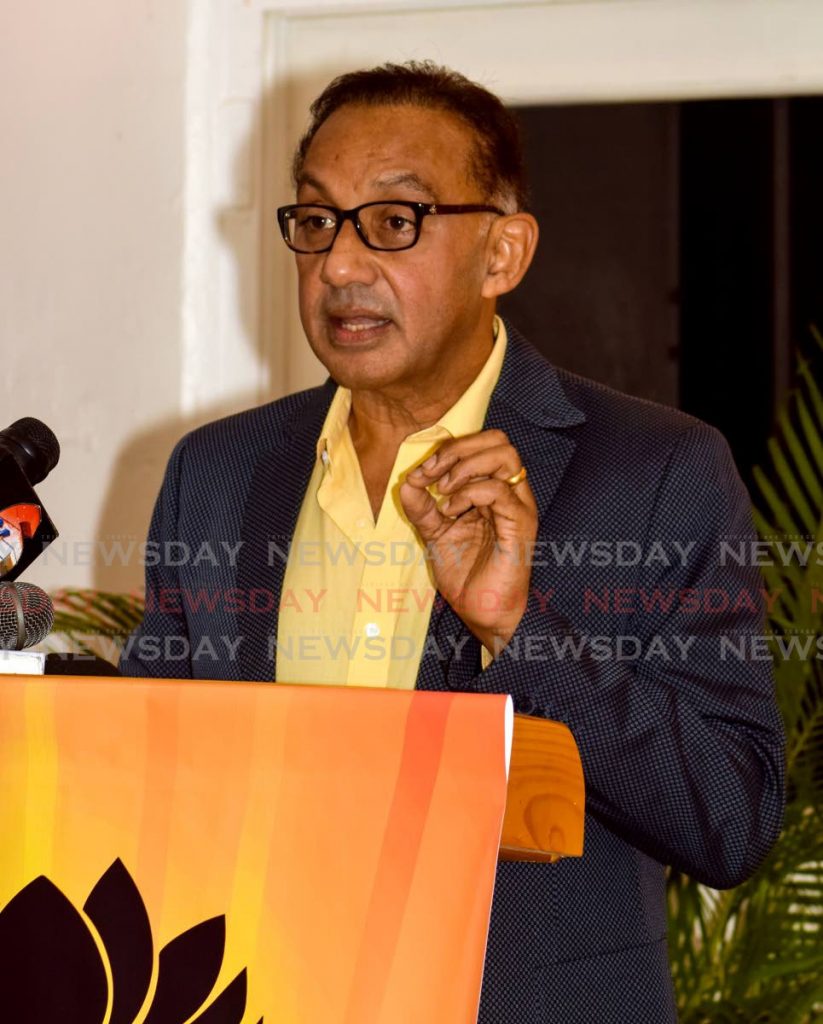Where’s the vision?

VASANT BHARATH
THE MINISTER of Finance’s seventh budget presentation turned out not to be lucky 7 for the population. The minister is asking us to take a huge leap of faith in believing that he will or can deliver any of his promises in budget 2022 when all that he has delivered for each of the past six years are: negative growth; no new revenues; continued deficits; ballooning debt now close to 90 per cent of GDP; reductions in foreign exchange reserves.
Not a single positive rating from any of the international agencies.
We must be alert to the fact that this was all pre-covid19. All of the above are as a direct result of the Government’s failed economic policies over the last six years of: increased taxation; increased borrowings; sale of state assets; funding from the Heritage and Stabilisation Fund (HSF).
It is clear from the budget 2022 statement that the minister intends to continue with the above policies with the introduction of property tax, continued borrowing to fund recurrent expenditure, drawdowns on the HSF and the sale of “strategic” state assets.
The question is where is the vision for an explosive growth agenda marching towards building a prosperous TT?
It is my belief that the minister had a golden opportunity to press the reset TT button – to lay out a vision of what TT post-covid19 will look like. To do that he needed to outline bold proposals to create positive economic momentum. He needed to:
* Boost spending on job creation.
* Put more money in the hands of the taxpayer to incentivise consumption.
* Make it easier to do business.
He achieved none of the above.
My agenda for immediate explosive growth would include the following:
Agriculture
* Guaranteed pricing to farmers for a selected basket of crops for a period of three years in the first instance, eg cassava, yam, sweet potatoes, tomatoes, etc. That way farmers are protected from gluts in the market and can concentrate only of growing a quality product. A reformed Namdevco will be used as the offtake for these products and finding markets.
* Mandate all state institutions that provide meals to use only locally grown produce, eg prisons, army, school feeding, etc.
* Waive the necessity to have security of tenure for access to agricultural incentives as in the majority of cases it is the State’s fault that farmers’ leases have not been renewed.
Construction
* Waive VAT on all construction materials for projects starting within the next 24 months with completion within the next 36 months.
* Pay all legally outstanding monies to contractors including VAT.
* Focus on complete reform of Town and Country and other bureaucratic regulatory agencies that prohibit legitimate construction.
Manufacturing
* Remove the requirement to pay VAT on imported raw materials.
* Pay all outstanding VAT refunds.
* Waive corporation tax on all new exports for a period of 36 months.
* Laser-focus on ease of doing business and enhancing the domestic enabling environment.
* Market readiness assistance grants once a new market is penetrated.
Small and medium-sized businesses (SMEs) make up 90 per cent of businesses and 50 per cent of employment worldwide and seven out of ten jobs in emerging markets. The strategy is therefore to support SMEs for investment, growth, export and diversification and is viewed as a priority sector.
* Central Bank mandate for banks operating in TT to reflect the following:
a. Guaranteed per cent of foreign exchange must be made available to SMEs.
b. Guaranteed per cent of loan portfolio made available to SMEs.
* Deferral of outstanding taxes for period of two years.
* Expenditure on staff upskilling and technical assistance matched by Government on a 50/50 basis.
* Special focus on women-owned SMEs with longer-term loans, favourable rates of interest and relaxation on collateral requirements.
In addition to the above, corporation tax for companies operating in the non-energy sector should be reduced to 15 per cent for a three-year period with the proviso that the tax foregone is reinvested back into the business for purchase of plant and machinery, expansion and further employment.
Although some may argue that these proposals result in loss of revenue to the Government, the returns far outweigh the costs and will result in rapidly ramping up economic activity in TT, creating thousands of new jobs and businesses, restoring confidence and creating an environment where creativity, curiosity, critical thinking, entrepreneurship and innovation will thrive and prosper – all critical ingredients in competing and succeeding in the new post-covid19 environment.
There are many other aspects that the minister did not talk about in his 3.5 hours at the podium that are also crucial to creating a new vision for TT, namely reform of the Public Service, an education curriculum that prepares our children for the new world of work and to be global citizens, the diversification agenda, what distinguishes our tourism sector from other destinations, the crumbling healthcare system and how we deal with the inequities in the system, and how an outdated criminal justice system will serve us in a new envisioned society. But that is a discussion for another time.


Comments
"Where’s the vision?"